Dr Sophie Earl: Vaccines, COVID-19 and Training (Rider Feature)
In this feature interview, read about her experiences on the front line in the COVID battle.
By day Sophie treats the sickest COVID patients on the ICU and by night she transforms into an elite cyclist. We’ve moved into spring 2021 and COVID-19 is still affecting our daily lives is a number of ways. For Dr Sophie Earl, a senior anaesthetic registrar at Leeds Teaching Hospitals and rider for the Crimson Performance Orientation Marketing Race Team, this is no different.
Racing has currently taken a back seat and caring for COVID-19 patients has taken on fully priority. Today, we catch up with her to talk about day-to-day life at the ICU as well as the things she’s doing to keep on top of her training.
Subscribe for marketing insights via email
1. Sophie, first of all, we're grateful for the great work you are doing in the NHS. How are you coping with everything at present?
Thank you. Work has been a bit mad for about a year now! When I look back I don’t think anyone could have imagined how things would change so suddenly.
When we were preparing for the first wave of Covid-19 to hit us last spring I remember feeling super anxious, and the atmosphere at work was very tense. We were doing our best to be ready for something that we had never experienced before and had no idea how big the impact would be. But we all realised that we had to dig in, be resilient and do our best for all of those people who were suffering from this unpredictable and sometimes awful virus.
“We are currently having to be very flexible to accommodate surges in cases of covid-19 cases requiring intensive care while balancing the need to provide emergency and urgent operations for patients with traumatic injuries, cancer and other acute illnesses. This means that there is no such thing as a typical day anymore!”
Over the course of the last year, we have grown to understand more about Covid-19 and to adapt our practice to reflect this. As an individual, team and organisation we have become more adaptable to change and have overcome many extremely challenging situations. It has not been easy for anyone, and at times it has been exhausting and mentally draining, but we will continue to help fight this virus for as long as we need to.
2. Please tell us a little about what you do at work and your role within the NHS.
I am a senior anaesthetic registrar at Leeds Teaching Hospitals. This means that I am directly involved in managing the care of patients in the operating theatre, on the intensive care units, on the labour ward and in the emergency department. My job is very varied and I never know what to expect when I arrive for a shift - this is part of why I enjoy it so much.
3. What does your typical day look like at present? How much of your day is involved with treating patients with COVID-19?
As I mentioned before we are currently having to be very flexible to accommodate surges in cases of covid-19 cases requiring intensive care while balancing the need to provide emergency and urgent operations for patients with traumatic injuries, cancer and other acute illnesses. This means that there is no such thing as a typical day anymore!
Yesterday I spent 10 hours working in full PPE on Covid ITU, performing tracheostomies, taking ventilated patients for CT scans and managing the day-to-day care of 15 ITU patients; and on Thursday I will be anaesthetising children for emergency and urgent operations in paediatric theatres.
4. How do you see vaccines being part of the final charge versus COVID-19?
I hope that vaccination will provide a way out of this pandemic, but this relies upon a number of factors. It relies on everybody doing their best to access correct information about the vaccine and making an informed decision to have the vaccine. It saddens me that there are many rumours and fake news articles out there, but I hope the vast majority of people can see past and see the benefit of protecting our communities by mass vaccination. The virus will likely evolve and change, and therefore it is essential that vaccine research continues to accommodate this. I’m not a virology or vaccination expert, but I can envisage a scenario where we end up with a situation similar to the flu vaccine, where the vaccine requires updating periodically, for example, every year.
I am very pleased and grateful to say that I have received my first vaccine and have an appointment for my second dose at the beginning of April (and I haven’t heard from Bill Gates or starting transmitting mobile phone signals yet)!
5. Has your work in the ICU impacted your exercise/training in any way?
It absolutely has. At first, I was quite nervous to exercise for fear of having contracted covid-19 and not realised and putting unnecessary strain on my body. This fee eased as the year went on and I have felt confident to increase my training load.
However, I still work frequent night shifts and long days, so I work with my coach to try to adapt training around this, as they add so much fatigue to the body it can be difficult to perform well physically around these shifts.
6. You're also a rider on the Crimson Performance Orientation Marketing team. How did that come about?
I am, and I am very grateful to the team for their support.
I got to know members of the existing Crimson Performance Women’s team during my first (and now only) season on racing in 2019. The women were all so friendly and welcoming at races to me as a newbie. After I got a few good results in races, at the end of the season they asked me if I would like to join the team and I was super excited to accept the invitation to join such a great team.
7. With COVID-19 affecting the race calendar, have you embraced indoor racing technology such as Zwift?
I have embraced Zwift training, but not so much racing - mainly because my turbo trainer is on the top floor and my internet isn’t good enough to stop it cutting out periodically, which is annoying!
I can’t wait for road racing to commence again though, we have all been working so hard to keep and increase our fitness over winter, we will be so ready when we can line up on the start line again!
8. What do you like most about your training, or enjoy most during? Any tips for fellow riders during these times?
I like that training gives me motivation and structure outside of work. I sometimes don’t feel like doing it, like when it’s wet and cold outside, or I’ve just got home from a tiring day at work, but I always feel better afterwards! It gives you a sense of purpose and achievement when there is not a lot else to do in this lockdown world!
My advice would be to follow a plan - coaches can be expensive, but Crimson Performance offers a tailored online plan that is great value for money, and provides that structure that really helps people see progress and results.
9. What advice would you give to mitigate the spread of COVID-19?
Even though they can be confusing and frustrating sometimes, please follow Government rules and advice. And please get your vaccination as soon as it is offered to you.
Click for more on the Crimson Performance Orientation Marketing Race Team or visit the team website.


